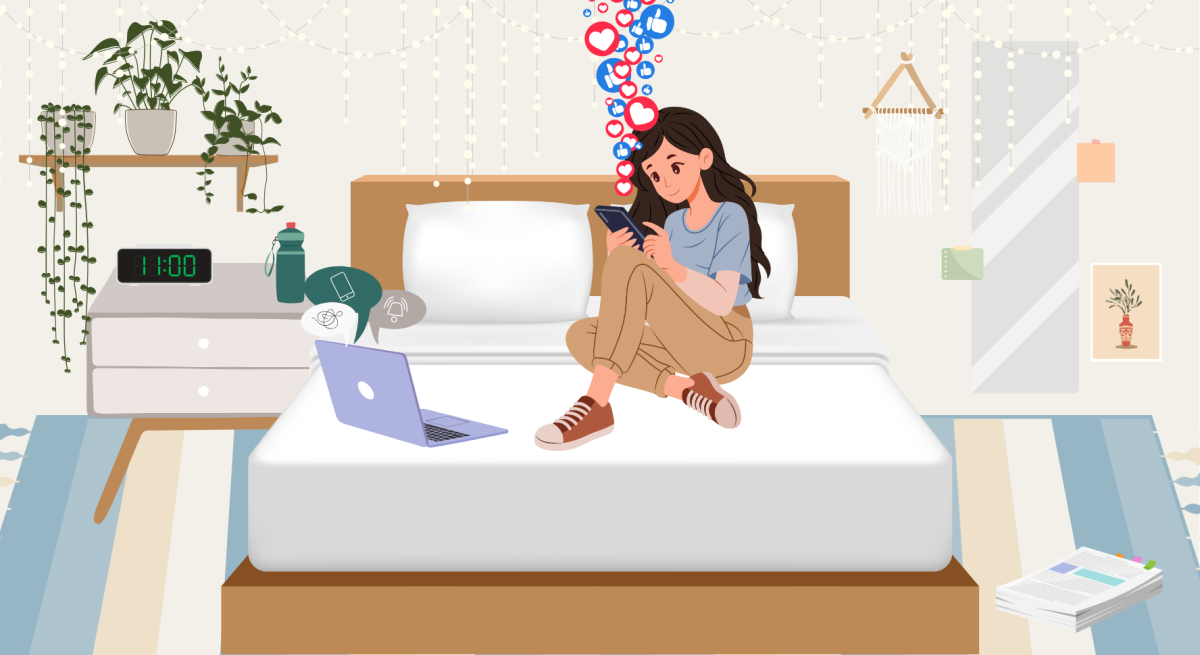As new electronics are being pushed out by companies each year, students fall into the rabbit hole of purchasing yet another distracting device. With each new device comes a multitude of different apps that can be extremely distracting to students. As of 2021, there are approximately 1.8 million different apps that users can download from the App Store and Google Play Store.
Electronic devices are bad for teenagers in almost every way possible, whether or not they choose to believe it. Almost any app or algorithm can harm teenagers, as they spend excessive amounts of time on them. The infamous app TikTok creates an algorithm based on the videos a person views and likes. The app is meant to be addictive, so users will spend more time on the app. Some videos are not age-appropriate for teenagers and can result in mental health problems. As some videos on social media platforms promote these problems, teenagers can be more prone to them.
Teenage students who grew up in the generation of electronic devices are more likely to fall down the hole of endless scrolling every night before they go to bed, when they wake up and even in school during class. With this screen time addiction comes extreme consequences that most do not notice right away. It starts with a lack of attention towards coursework, potential eye strain and even psychological distress depending on the content that they are watching on their device.
While the average high school student in America spends around seven hours a day staring at a phone screen, the recommended healthy limit falls short of just two hours. With more and more time being spent on phones, teenagers do not know what to do without them, which brings a wide spread of different issues.
Setting limits when it comes to screen time is extremely important. Phones come with a built-in screen time limit option, so using that as a resource or a reminder as to how much time is spent on apps can help limit usage. Without setting limits on these apps, they can cause the addiction to become more extreme, making it harder to fix later on.
“My screen time is around six hours a day and it affects my school work as I procrastinate a lot. I would rather be on my phone than finish my work, which has not been the right option,” Trinity Vojtko (11) said. “My time management has been bad as well because I usually wait until the last second to finish my work.”
As students become more addicted and distracted by their electronic devices every day, it comes to the question of whether or not they would be able to function properly without them. Teenagers today do not know what it essentially means to become bored, as they have entertainment at their reach almost every second of their day. They use their screen time as an escape from their reality.
“I usually get three hours [of screen time] daily and I do not think it affects my school work in any way. Just doing the work is hard due to the lack of sleep I get from being on my phone,” Boden Hilliard (11) said.



